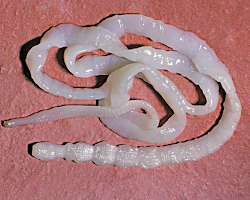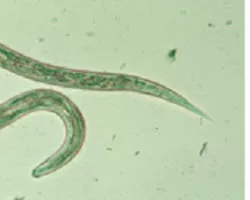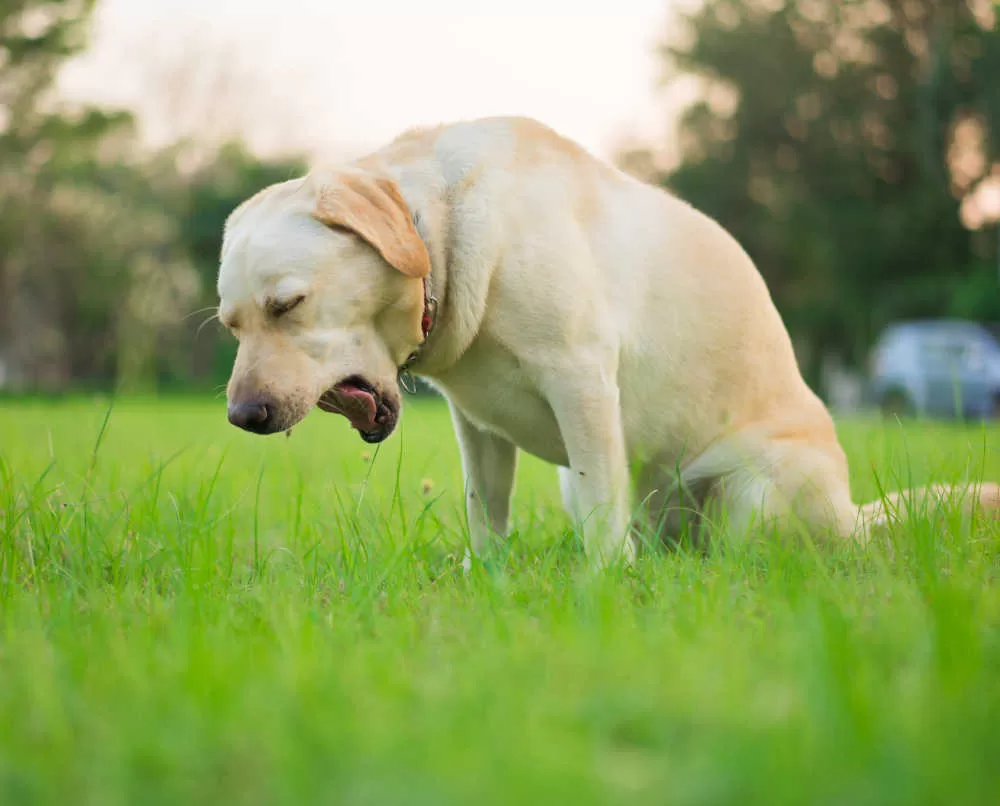Dog dry heaving is a distressing symptom that can indicate a serious condition or a minor irritation. In this guide, we will explain what dog dry heaving is, what causes it, and what you can do to help your dog. We will also provide some tips on how to prevent dog dry heaving and when to seek veterinary attention.
Table of Contents
What is Dog Dry Heaving?
Dog dry heaving is when your dog tries to vomit but nothing comes out. It may sound like a loud retch, a burp, or as if your dog can’t catch his breath. It looks like your dog is vomiting with abdominal effort – you can see a wave of muscle contraction that begins in the deep abdomen and progresses towards the stomach and diaphragm.
Dry heaving itself is not dangerous to your dog, but it can be a sign of a serious condition that requires immediate treatment. Therefore, it is important to monitor your dog closely and look for other symptoms that may indicate the cause of dry heaving.
Also Read: Smegma Removal and Treatment: How to Clean Dog Smegma by Yourself
How Normal Is Vomiting In Dogs and How it is Related to Dog Dry Heaving?
Vomiting can be differentiated from dog dry heaving by its more liquid/watery nature as well as the smell that accompanies it. In dogs that are dry heaving, owners will notice a very similar sound as those dogs that are vomiting, but there should also be a lack of vomit.
Dog dry heaving can be caused by several things – the most common causes include eating too quickly or too much, eating a foreign body or foreign material, eating something high in fat, or eating something indigestible.
All dogs will occasionally dry heave, especially if they have been fed too quickly, but this behavior should not go unnoticed by owners.
What Causes Dog Dry Heaving?
1. Heaving due to illness
Yes, your dog mate can get sniffles at once. If your dog spends some time around other children, they have a better chance of catching the infection. The most common are Bordetella and Distemper.
The distemper is easy to spread in the air. When your dog catches it, it may start coughing repeatedly. Extreme fever and yellow discharge from their eyes and nose may also be present.

The illustration shows the signs of a dog Heaving due to illness and sitting on the floor, hunched over with its head down. The dog is making a retching noise and its stomach is visibly contracting. The dog’s eyes are closed and its ears are down.
- The dog can be shown with a slightly pale or sickly-looking coat.
- The dog’s tongue can be shown hanging out of its mouth.
- The dog’s eyes can be shown watering.
- The dog can be shown panting or breathing heavily.
The good news is that the distemper is usually not as severe. With a little loving care, the symptoms will subside on their own. To prevent future problems, you can get an annual vaccine to protect your dog from illness.
Bordetella, also known as kennel cough, is another infectious disease. Dogs can get it when kept in confined spaces with other dogs. In addition to coughing, dogs feel lethargic. The cough is dry, which often causes heaving.
Like the Distemper, your dog should start getting a good feeling of himself after a few days.
2. Gastric Dilatation Volvulus (GDV)
GDV, also known as bloat or twisted stomach, is a medical emergency that occurs when the stomach fills with gas and twists on itself, cutting off blood supply and preventing the gas from escaping. GDV can cause severe pain, shock, and death if not treated promptly.
One of the main signs of GDV is dry heaving, especially if it is accompanied by a swollen, hard abdomen, restlessness, drooling, pale gums, and collapse. GDV is more common in large, deep-chested breeds, such as Great Danes, German Shepherds, and Rottweilers, but it can affect any dog.
If you suspect your dog has GDV, do not waste time and take him to the nearest emergency vet immediately. GDV can be fatal within hours without surgery.
3. Parasitic infections can cause Dog Dry Heaving
It may sound a little gross, but parasitic infections are very common in dogs. The most harmless thing like a single flea can cause a big infection that affects the whole body of your puppy!
Roundworms are common. Dogs can be infected by pressing soil contaminated with eggs. These small pests can reach your puppy’s lungs and trachea. It is a constant tickle of insects that causes dry heaving.

Tapeworms can also be the culprit. Dogs can get tapeworms by ingesting an infected fly. These are usually trapped in your dog’s intestines to steal nutrients, causing a persistent cough.

Giardia: Giardia is a protozoan parasite that can live in the dog’s intestines. It can cause diarrhea, vomiting, and weight loss.

Hookworms: Hookworms are small, parasitic worms that attach to the lining of the dog’s intestines. They can cause diarrhea, weight loss, and vomiting.

Finally, there is the heartworm. Heartworms can be fatal if left untreated. They can create havoc in your dog’s heart and lungs. Like roundworms, they can enter your puppy’s throat and cause dryness.
Fortunately, parasitic infections are both treatable and preventable. For round or hookworms, you do not even have to visit the vet. You can stop by your local pet supermarket and pick up deworming products to get the job done.
They will kill the parasites in a few days and eventually, they will provide relief to your puppy.
Heartworms require a little more intensive care from a veterinarian. However, you can get monthly heartworm remedies to make sure your puppy does not have to deal with those parasites again.
4. Foreign Bodies on Airways
Dogs have a tendency to get into things that do not bother them. They love small toys, plastic bits, and anything they can get their feet on to chew very nicely. Unfortunately, all of those little things can cause a significant suffocation risk.

You wonder how many dogs a year have to remove objects from their throats. Heaving is an attempt to clear your dog’s throat. Depending on the size and position of the object, your dog may have problems breathing.
It is imperative to bring your puppy to the vet as soon as possible. Attempting to remove an object on your own is dangerous. If it is a place where it is available in their mouth, you can remove it. However, deeper points in the throat require expert hands.
Foreign objects can damage the lining. In addition, you run the risk of pushing the item further into their throat and completely blocking the air. It is advisable to entrust this task to a veterinarian.
5. Clogged airways causes Dog Dry Heaving
A non-foreign object blocking its airways can also cause your dog to dry out. For example, your puppy may have a tumor in the throat. Tumors are not always cancerous, so don’t worry yet.
However, they need to be surgically removed. Tumors affect breathing and eating, so it is important to take care of them as soon as possible.
Tonsillitis and pharyngitis can also affect breathing. These conditions can cause inflammation of the glands behind the throat. The flame prevents air from flowing freely. They also trigger your dog’s gag reflex, which can lead to dry heaving.
6. Respiratory Infection
Another possible cause of dog dry heaving is a respiratory infection, such as kennel cough, canine influenza, or pneumonia. These infections can cause inflammation and irritation of the airways, which can trigger a cough reflex and dry heaving.
Respiratory infections can also cause other symptoms such as sneezing, nasal discharge, fever, lethargy, and difficulty breathing. They can be contagious to other dogs, so it is important to isolate your dog and prevent contact with other pets.
The treatment for respiratory infections depends on the type and the severity of the infection. Some infections may resolve on their own with rest and hydration, while others may require antibiotics, anti-inflammatory drugs, or oxygen therapy.
7. Tracheal Collapse
Tracheal collapse is a condition that affects the trachea, or the windpipe, which carries air from the nose and mouth to the lungs. The trachea is supported by rings of cartilage, which can weaken and collapse over time, causing the trachea to narrow and obstruct the airflow.
Tracheal collapse can cause dry heaving, coughing, gagging, wheezing, and difficulty breathing, especially during exercise, excitement, or stress. It can also cause a characteristic “goose honk” sound when your dog breathes.
Tracheal collapse is more common in small breeds, such as Poodles, Chihuahuas, and Yorkies, and can be congenital or acquired. It can also be worsened by obesity, smoking, or environmental irritants.
The treatment for tracheal collapse depends on the severity and the cause of the condition. Mild cases may be managed with weight loss, avoiding stress and heat, and using a harness instead of a collar. Severe cases may require medication, such as bronchodilators, corticosteroids, or cough suppressants, or surgery, such as stent placement or tracheal ring implantation.
8. Bloating in Dogs
Dry heaving is again a very common symptom of bloating. It occurs when the dog tries to vomit but is unable to because the stomach is blocked.
Now, let’s move on to the most serious cause of dry heaving in dogs. Also known as bloating, gastric dilation, and volvulus, it is a life-threatening condition that does not take long to affect dogs.
Swelling in humans is nothing more than an inconvenience, this problem is very dangerous in dogs. With GDV, the stomach fills with air and expands rapidly. It causes the stomach to twist and stop its own blood supply.
- There are multiple factors that can contribute to bloat, including:
- Eating too quickly
- Eating large meals
- Exercising too soon after eating
- Certain breeds of dogs, such as Great Danes, German Shepherds, and Saint Bernards, are more prone to bloat.
9. Gastrointestinal Irritation
Sometimes, dog dry heaving can be caused by a mild irritation of the stomach or intestines, such as from eating something spicy, spoiled, or toxic. This can cause inflammation, nausea, and vomiting, which may lead to dry heaving if the stomach is empty.
Gastrointestinal irritation can also be caused by food allergies, intolerance, or sensitivity, which can trigger an immune response and inflammation in the digestive tract. Some common food allergens for dogs are beef, chicken, dairy, wheat, soy, and corn.
If your dog is dry heaving due to gastrointestinal irritation, you may notice other symptoms such as diarrhea, gas, bloating, itching, or skin problems. You may also be able to identify the source of the irritation by checking what your dog ate recently or if you changed his diet.
The treatment for gastrointestinal irritation depends on the severity and the cause. In most cases, withholding food for 12 to 24 hours and then gradually reintroducing a bland diet, such as boiled chicken and rice, can help soothe the stomach and restore normal digestion. You may also give your dog some water or ice chips to keep him hydrated.
However, if your dog is dry heaving due to a toxic ingestion, such as chocolate, grapes, xylitol, or antifreeze, you need to seek veterinary attention immediately. Some toxins can cause irreversible damage to the liver, kidneys, or nervous system, and may require antidotes or supportive care.
How to Prevent Dog Dry Heaving
While some causes of dog dry heaving are unavoidable, there are some steps you can take to prevent or reduce the risk of dry heaving in your dog. Here are some tips:
- Feed your dog a high-quality, balanced, and appropriate diet for his age, size, and activity level. Avoid sudden changes in his diet and introduce new foods gradually. Avoid giving your dog human food, especially spicy, fatty, or toxic foods. If your dog has food allergies or intolerance, consult your vet for a suitable diet.
- Provide your dog with fresh, clean water at all times and monitor his hydration level. Dehydration can worsen dry heaving and vomiting and lead to other complications. You can check your dog’s hydration by lifting his skin on the back of his neck and seeing how quickly it snaps back. If it stays up or goes back slowly, your dog is dehydrated and needs fluids.
- Keep your dog away from potential foreign objects that he may swallow, such as toys, bones, socks, coins, or plants. If your dog is prone to chewing or swallowing things, provide him with safe and appropriate chew toys and supervise him when he plays. If you notice any signs of foreign body ingestion, contact your vet immediately.
- Protect your dog from respiratory infections by keeping him up to date on his vaccinations, avoiding contact with sick dogs, and maintaining good hygiene. If your dog has a respiratory infection, isolate him from other pets and follow your vet’s instructions for treatment and recovery.
- If your dog has tracheal collapse, help him lose weight if he is overweight, avoid stress and heat, and use a harness instead of a collar. Follow your vet’s recommendations for medication or surgery if needed.
- If your dog has GDV, feed him smaller, more frequent meals instead of one large meal, and avoid feeding him right before or after exercise. Avoid foods that cause gas, such as beans, dairy, or soy. Do not let your dog drink too much water at once or gulp air while eating or drinking. If your dog is at high risk of GDV, talk to your vet about preventive surgery, such as gastropexy, which attaches the stomach to the abdominal wall to prevent twisting.
Is dry heaving always a sign of something serious?
No, Dog dry heaving is not always a sign of something serious. In some cases, it can be a minor issue that will resolve on its own. However, it is important to be aware of the potential serious causes of dry heaving, such as bloat, and to seek veterinary care if your dog is dry heaving and showing other symptoms.
When to See a Vet for Dog Dry Heaving
While some cases of dog dry heaving may be mild and self-limiting, others may be serious and require immediate veterinary attention. You should see a vet for dog dry heaving if:
- Your dog is dry heaving repeatedly or constantly
- Your dog has other symptoms, such as vomiting, diarrhea, loss of appetite, abdominal pain, bloating, fever, lethargy, or difficulty breathing
- Your dog has a swollen, hard, or painful abdomen
- Your dog is pale, weak, or collapses
- Your dog has ingested something toxic or foreign
- Your dog has a history of GDV, tracheal collapse, or respiratory infection
- Your dog is a large, deep-chested breed
- Your dog is very young, very old, or has a chronic health condition
Do not try to induce vomiting in your dog unless instructed by your vet, as this may worsen the condition or cause complications. Do not give your dog any medication without consulting your vet, as some drugs may be harmful or contraindicated for your dog.
Conclusion
Typically, dogs do dry heaving in an attempt to escape some gas. Unfortunately, the twisting of the stomach prevents this from happening.
GDV needs immediate emergency care. Dry heaving is usually accompanied by lethargy, pale abdomen, shortness of breath, and an increase in heart rate.

